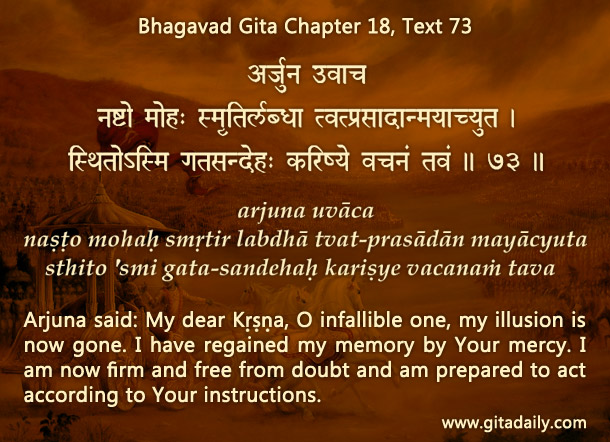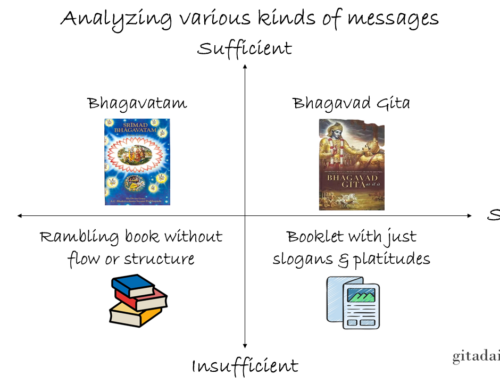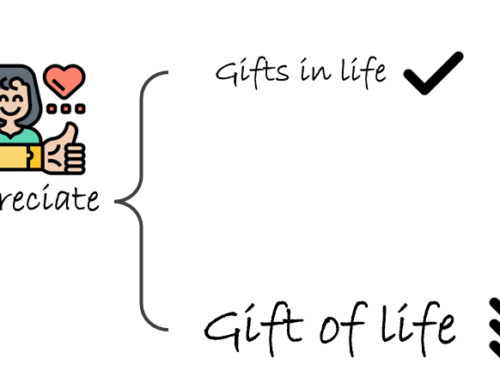The Bhagavad-gita is a profoundly philosophical book, yet it is also an eminently action-calling book. This pragmatic nature of the Gita is seen in its conclusion (18.73): Arjuna tells Krishna, “I will do your will.”
This voluntary harmonization of the human will with the divine will is the essential purpose for which the Gita was spoken. And it is the purpose that should underlie our reading of the Gita: “Amidst my opportunities and problems, how can I do Krishna’s will?”
See heeding the Gita not as an exercise in unwilling submission but as a festival of loving reciprocation
If we read the Gita and then go on with our life as if no change were needed, then we deprive ourselves of most of the blessings that Gita study offers. Yes, contact with Krishna through his words in any form, even a cursory reading or just a casual touch, offers some benefits. The Gita is akin to a legendary herbal medicine that just by placing in a room spreads a healing fragrance. Yet just as the medicine offers full benefit when it is properly ingested, similarly Gita study offers full benefit when we heed what we read.
And heeding the Gita is not all that difficult, especially when we read it with a devotional disposition. The Gita is not a law-book coming from a dictator who wants to dominate us – it is a guidebook coming from a benevolent God who wants to liberate us. By reading the Gita, we understand that we are souls, who are parts of Krishna and can find the highest happiness by loving him. When we grasp how much Krishna loves us and how much he wants us to rejoice in his love, we see heeding the Gita not as an exercise in unwilling submission but as a festival of loving reciprocation – a festival that will ultimately elevate us to Krishna’s immortal world of love.

Explanation of article:
https://www.youtube.com/watch?v=wksURKziv0o





Prabhu
In your various lectures you have given different analogies to make meaning of this life. I have pooled together below your various points with a few thoughts of my own:
This Universe is a Virtual University; each life is a semester; Krishna is our teacher and He teaches thru Distance Learning; Desire is the language between the teacher and the taught; the subtle body is our text book and note book;the gross body is the uniform. Learning happens thru experience; Curriculum comprises of two subjects – detachment from matter and attachment to spirit; tests are objective type questions with a choice of good and bad; assessment is done by the Paramattma and the final exam is called death; if we pass ( “harmonisation of the Divine Will with the Human will”) we exit the virtual university; otherwise the cumulative learning is carried forward to the next semester.
Insightful!
ys
ccdas
@Muralidhara dasa, add Guru ( Spiritual Master ) in the analogy.